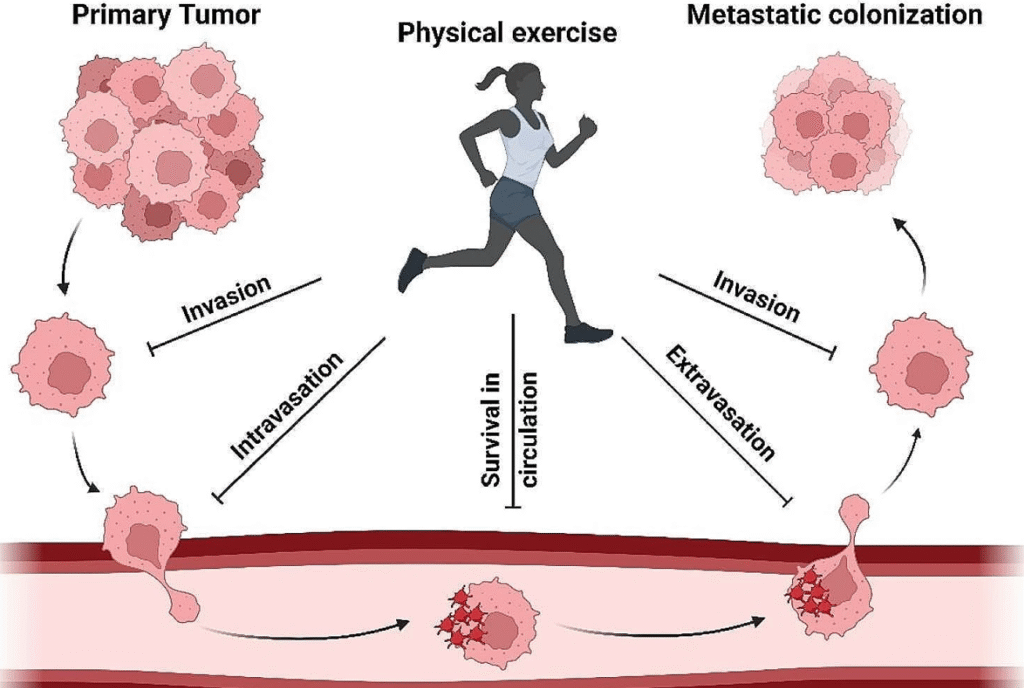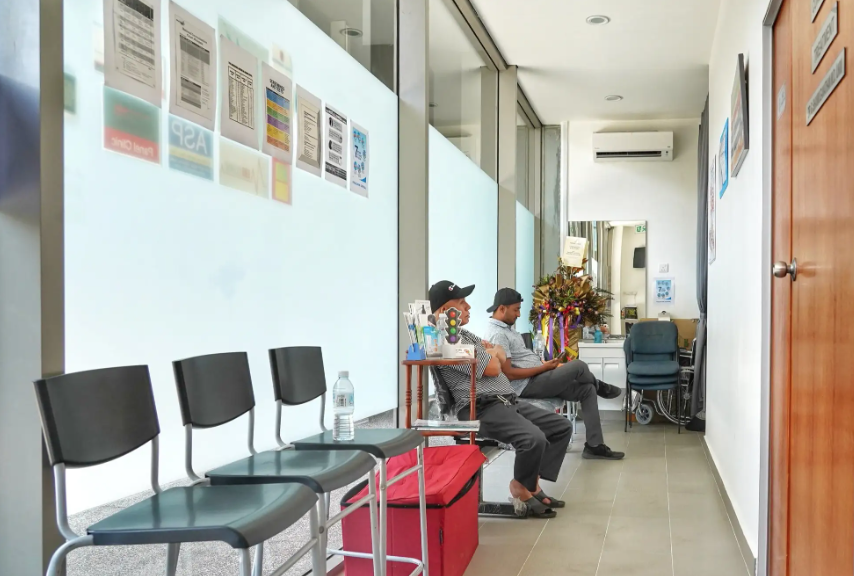- Colorectal cancer is the second leading cause of cancer death worldwide, and the third most common form of cancer overall.
- Chemotherapy, radiation, and surgery are among the treatments.
- To reduce the risk of recurrence, people are advised to continue with a healthy lifestyle after initial treatment, often in addition to additional medication treatments.
- Exercise arranged in advance may be better than medication therapies at preventing colon cancer from returning, a study suggests.
- Patients who had been taught to Exercise under supervision were 37% less likely to die of any cause, and 28% less likely to get refractory.
Exercise reduced the risk of death from any cause by 37%, the research, reported in The New England Journal of Medicine (NEJM), also showed.
Globally, colorectal cancer is the third most common cancer, accounting for 10% of all cancer cases, the World Health Organization (WHO) Trusted Source report has said.
By joining a fitness programmer after undergoing surgery and chemotherapy for colon cancer, people who took part in such a programmer were 28% less likely to return to the disease than those who were only told to take good care of themselves, a new study has found.
These findings imply that Exercise may be “better than a medicine” in avoiding the return of colon cancer. According to experts,
David Sebag-Montefiore, MB BS, MRCP, FRCP, the Audrey and Stanley Burton Professor of Clinical Oncology and Health Research at University of Leeds in the United Kingdom, was not involved in the trial, said an interview with the Science Media Centre:
Health advice versus a structured Exercise program for preventing cancer
For this study – which came as part of the CHALLENGE (Colon Health and Lifelong Exercise Change) experiment – participants were recruited from 889 people, most of whom were Canadians and Australians, but also from the United States, the United Kingdom and France.
All patients enrolled in the trial between 2009 and 2024 were on adjuvant chemotherapy to try to prevent disease recurrence after surgery for stage 3 (high risk) stage 2 colon cancer; the median age was 61 years, and the age range was 19–84 years.
Before the experiment none of the subjects Exercise for more than 150 minutes weekly and most had body mass index (BMI) values that indicated they were overweight or obese (Trusted Source ).
Each participant was randomized to one of two groups by the researchers.
The physical activity consultants visited 445 patients in the exercise group for three years, each of whom was seen by them weekly for the first six months, every two weeks for the next six months and every month for the next two years.
Although the participants were free to select which aerobic activity, how much and what intensity, they were instructed to aim at the equivalent of three to four vigorous 45–60 minute walks per week.
In addition to the usual monitoring of patients, a small dose of health-education material (3444 patients) was delivered that targeted physical activity and an appropriate diet.
Exercise increased survival and decreased cancer recurrence.
At mean follow-up of 7. 9 years 131 (in the health-education group) and 93 (in the Exercise group) had either died or had a new primary cancer or recurred to the disease, and all-cause deaths of 107, 41 in the Exercise group and 66 in the health-education group, were recorded.
Even though the exercise group did not lose weight, its overall physical performance improved and their disease-free life span was significantly longer (annual incidence of recurrence, new primary cancer or death was 3.7%, compared with 5. 4% incidence of health-education group).
80% of the patients in the exercise group and 73.9% of the patients in the health-education group were disease free at five years.
Overall survival was the main finding of the study, lead author Kerry S. Courneya, PhD, Professor and Canada Research Chair in Physical Activity and Cancer at the University of Alberta in Edmonton, Canada, told Medical News Today.
Could physical activity be more effective than medication in preventing cancer?
The results indicate that exercise may be “better than a medicine” for cancer patient outcomes because it does not have the associated side effects, according to Julie Gralow, MD, Chief Medical Officer of the American Society of Clinical Oncology (ASCO), who was not involved in the experiment.
She did, however, issue a warning: “My objective was to compare the degree of benefit we obtain from current medications to what exercise achieved in terms of reduction of recurrences and fatalities, also taking toxicity into consideration. I did not want to recommend that we forego drugs in favor of exercise.”
“Exercise’s effectiveness in colon cancer patients is not restricted to these specific mutations,” she continued, adding that although there are effective medications that assist prevent recurrence in patients with specific mutations for the disease.
Courneya highlighted the advantages of their initiative:
Additionally, supervised Exercise might be far less expensive than prescription drugs.
The [physical activity] intervention cost between $3,000 and $5,000 [Canadian dollars], while some cancer medications can cost tens of thousands or even $100,000, according to Courneya.
Support is essential for encouraging people to Exercise.
Vicky Coyle, a clinical professor at Queen’s University Belfast in Northern Ireland and the trial’s principal researcher in the United Kingdom, told MNU that:
Such assistance should not come as a surprise, Joe Henson, PhD, Associate Professor in Lifestyle Medicine at the University of Leicester, who directed the exercise sessions in the trial at its facility in Leicester, U. K.
But for many people regular exercise still a challenge, bearing in mind the many benefits it can have. This study points out the importance of routinely adding exercise recommendations to cancer care and individual support to individuals, ” Henson told us.
Even though she would like to emphasize the importance of exercise to her own patients, Gralow said, it can be a challenge to actually implement such exercise regimes as those featured in the study:
Therefore, she stated, “we need to discover alternate strategies that do not require clinic visits but do offer consistent support and encouragement to help our patients incorporate fitness into their life.” Additionally, as clinicians, we must ensure that we are prescribing this (an exercise prescription!).




